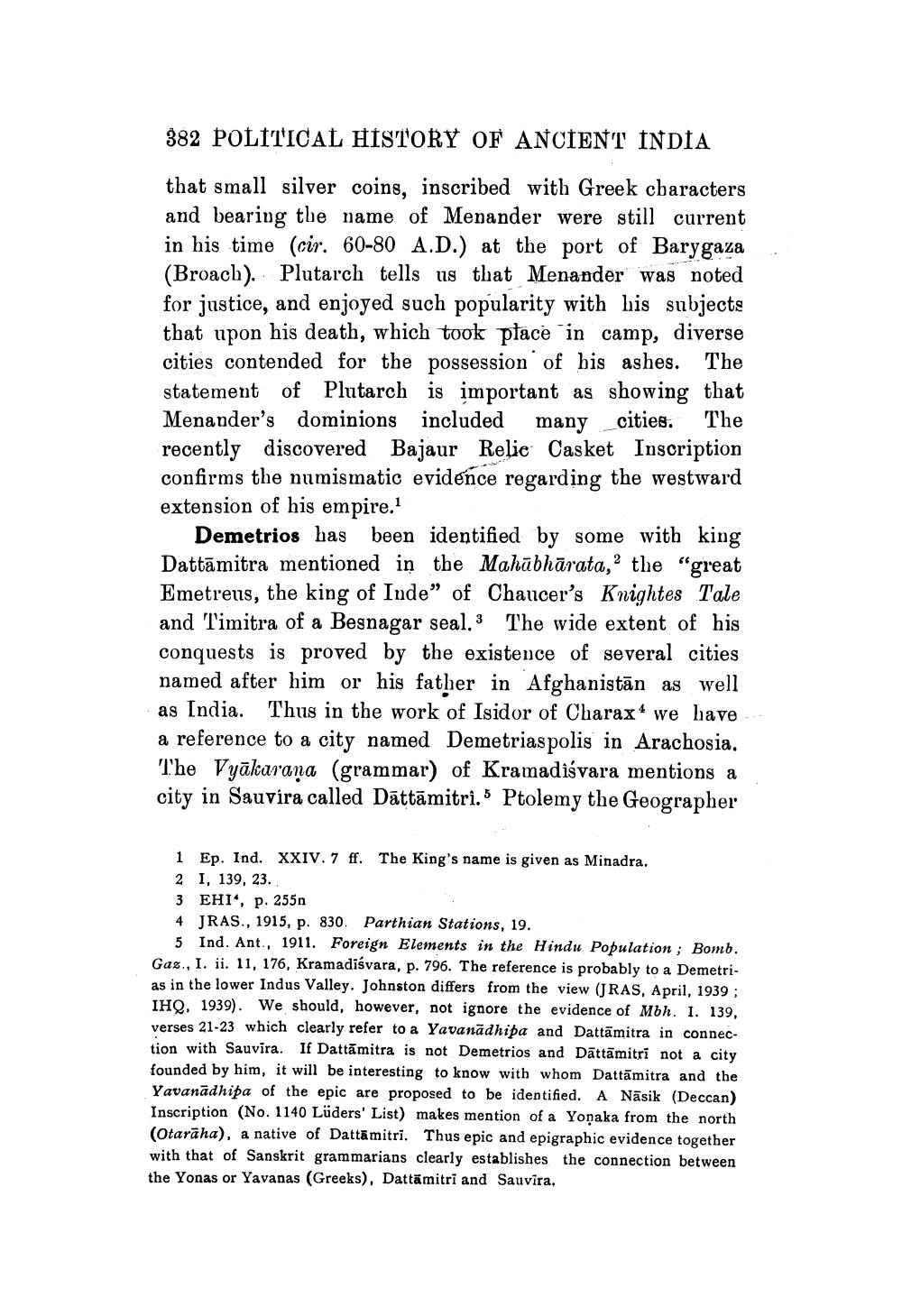________________
382 POLITICAL HISTORY OF ANCIENT INDIA
that small silver coins, inscribed with Greek characters and bearing the name of Menander were still current in his time (cir. 60-80 A.D.) at the port of Barygaza (Broach). Plutarch tells us that Menander was noted for justice, and enjoyed such popularity with his subjects that upon his death, which took place in camp, diverse cities contended for the possession of his ashes. The statement of Plutarch is important as showing that Menander's dominions included many cities. The recently discovered Bajaur Relic Casket Inscription confirms the numismatic evidence regarding the westward extension of his empire.1
Demetrios has been identified by some with king Dattamitra mentioned in the Mahabharata, the "great Emetreus, the king of Inde" of Chaucer's Knightes Tale and Timitra of a Besnagar seal.3 The wide extent of his conquests is proved by the existence of several cities named after him or his father in Afghanistan as well as India. Thus in the work of Isidor of Charax we have a reference to a city named Demetrias polis in Arachosia. The Vyakarana (grammar) of Kramadiśvara mentions a city in Sauvira called Dattamitri. Ptolemy the Geographer
1 Ep. Ind. XXIV. 7 ff. The King's name is given as Minadra.
2
I, 139, 23.
3 EHI, p. 255n
4 JRAS., 1915, p. 830.
Parthian Stations, 19.
5 Ind. Ant., 1911. Foreign Elements in the Hindu Population; Bomb. Gaz., I. ii. 11, 176, Kramadiśvara, p. 796. The reference is probably to a Demetrias in the lower Indus Valley. Johnston differs from the view (JRAS, April, 1939; IHQ, 1939). We should, however, not ignore the evidence of Mbh. I. 139, verses 21-23 which clearly refer to a Yavanadhipa and Dattämitra in connection with Sauvira. If Dattamitra is not Demetrios and Dattāmitri not a city founded by him, it will be interesting to know with whom Dattamitra and the Yavanadhipa of the epic are proposed to be identified. A Nasik (Deccan) Inscription (No. 1140 Lüders' List) makes mention of a Yonaka from the north (Otaraha), a native of Dattāmitri. Thus epic and epigraphic evidence together with that of Sanskrit grammarians clearly establishes the connection between the Yonas or Yavanas (Greeks), Dattämitri and Sauvira,




